American Experience Episode Rating Graph
Oct 1988 - present

Oct 1988 - present
7.9

| E1 | E2 | E3 | E4 | E5 | E6 | E7 | E8 | E9 | E10 | E11 | E12 | E13 | E14 | E15 | E16 | E17 | E18 | E19 | E20 | E21 | E22 | |
|---|---|---|---|---|---|---|---|---|---|---|---|---|---|---|---|---|---|---|---|---|---|---|
| S1 | ||||||||||||||||||||||
| S2 | ||||||||||||||||||||||
| S3 | ||||||||||||||||||||||
| S4 | ||||||||||||||||||||||
| S5 | ||||||||||||||||||||||
| S6 | ||||||||||||||||||||||
| S7 | ||||||||||||||||||||||
| S8 | ||||||||||||||||||||||
| S9 | ||||||||||||||||||||||
| S10 | ||||||||||||||||||||||
| S11 | ||||||||||||||||||||||
| S12 | ||||||||||||||||||||||
| S13 | ||||||||||||||||||||||
| S14 | ||||||||||||||||||||||
| S15 | ||||||||||||||||||||||
| S16 | ||||||||||||||||||||||
| S17 | ||||||||||||||||||||||
| S18 | ||||||||||||||||||||||
| S19 | ||||||||||||||||||||||
| S20 | ||||||||||||||||||||||
| S21 | ||||||||||||||||||||||
| S22 | ||||||||||||||||||||||
| S23 | ||||||||||||||||||||||
| S24 | ||||||||||||||||||||||
| S25 | ||||||||||||||||||||||
| S26 | ||||||||||||||||||||||
| S27 | ||||||||||||||||||||||
| S28 | ||||||||||||||||||||||
| S29 | ||||||||||||||||||||||
| S30 | ||||||||||||||||||||||
| S31 | ||||||||||||||||||||||
| S32 | ||||||||||||||||||||||
| S33 | ||||||||||||||||||||||
| S34 | ||||||||||||||||||||||
| S35 | ||||||||||||||||||||||
| S36 | ||||||||||||||||||||||
| S37 | ||||||||||||||||||||||
| S38 |
Browse episode ratings trends for American Experience. Simply click on the interactive rating graph to explore the best and worst of American Experience's 399 episodes.
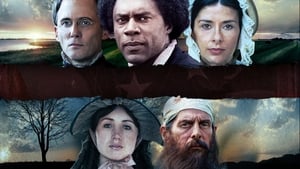
S25 Ep2
10.0
15th Jan 2013
See how the activities of the five principals intersect and affect the anti-slavery movement.
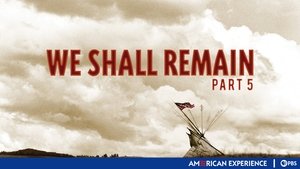
S21 Ep9
10.0
11th May 2009
On the night of February 27, 1973, fifty-four cars rolled, horns blaring, into a small hamlet on the Pine Ridge Indian Reservation. Within hours, some 200 Oglala Lakota and American Indian Movement (AIM) activists had seized the few major buildings in town and police had cordoned off the area. The occupation of Wounded Knee had begun. Demanding redress for grievances—some going back more than 100 years—the protesters captured the world's attention for 71 gripping days.
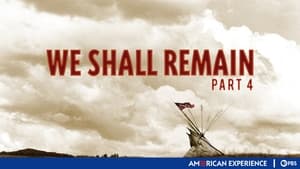
S21 Ep8
10.0
4th May 2009
In February of 1909, the indomitable Chiricahua Apache medicine man Geronimo lay on his deathbed. He summoned his nephew to his side, whispering, “I should never have surrendered. I should have fought until I was the last man alive.” It was an admission of regret from a man whose insistent pursuit of military resistance in the face of overwhelming odds confounded not only his Mexican and American enemies, but many of his fellow Apaches as well.
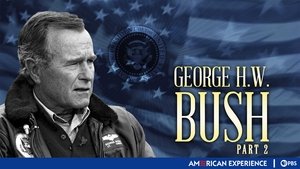
S20 Ep14
10.0
6th May 2008
George H.W. Bush presents the first in-depth assessment of the 41st president of the United States, drawing upon unparalleled access to figures in Bush's private and public life, to reveal Bush as a pivotal player during a critical moment in American and world history and in a powerful political dynasty. Bush's personal letters, and interviews with his closest advisors and prominent critics inform the film, including First Lady Barbara Bush, Condoleezza Rice, Colin Powell, Mikhail Gorbachev, and more.
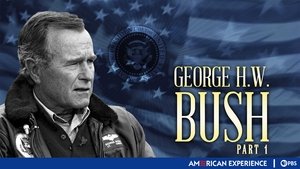
S20 Ep13
10.0
5th May 2008
When George. H.W. Bush left the Oval Office in 1992, rejected after one tumultuous presidential term, his 30-year career in public service came to an abrupt and unexpected end. Despite soaring approval ratings following military victory in the Persian Gulf, his years as president after the war were marked by almost unrelieved decline. A sluggish economy and an earlier decision to raise taxes, despite an explicit campaign oath, led to his defeat. By the end of his term many observers dismissed him as an artifact of an irrelevant Cold War past.
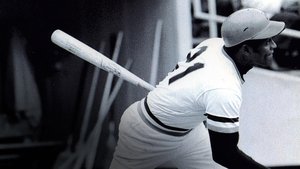
S20 Ep12
10.0
21st Apr 2008
Roberto Clemente is an in-depth look at an exceptional baseball player and committed humanitarian who challenged racial discrimination to become baseball’s first Latino superstar. Featuring interviews with Pulitzer Prize-winning authors David Maraniss and George F. Will, Clemente’s wife Vera, Baseball Hall of Famer Orlando Cepeda, and former teammates, the documentary presents an intimate and revealing portrait of a man whose passion and grace made him a legend.
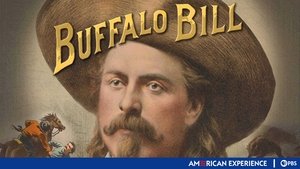
S20 Ep9
10.0
25th Feb 2008
In 1886, Buffalo Bill's Wild West Show played to over one million people in New York City. It was one of the most elaborate shows on earth. There were cowboys and Indians, sharp shooters, hundreds of horses, buffalo, elk and donkeys, with more than 200 cast members, all moving about in a sweeping western landscape of mountains and plains. It would go on to dazzle crowds in London, Paris, Rome and Barcelona, cementing the legend of the Wild West in the minds of people around the globe. Behind the extravaganza was one man -- a meager plainsman turned international celebrity and frontier hero, whose meteoric rise to fame was made possible only by his genius, and his hucksterism. His name was William Cody, better known to the world as Buffalo Bill.
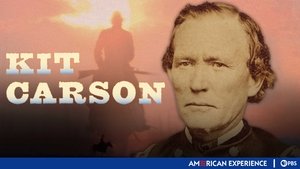
S20 Ep8
10.0
18th Feb 2008
An illiterate mountain man, Kit Carson was fluent in Spanish and five Indian languages; he twice married Native American women, yet led a brutal war against the Navajo. When the West was a mystery to most Americans, Carson mastered it, and his expertise made him not only famous, but also sought after. Eventually, by helping to spur a migration that would change the West forever, he unwittingly became an agent in the destruction of the life he loved.
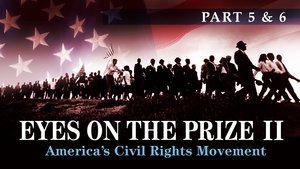
S20 Ep6
10.0
17th Feb 2008
A call to pride and a renewed push for unity galvanize black America. World heavyweight champion Cassius Clay challenges America to accept him as Muhammad Ali, a minister of Islam who refuses to fight in Vietnam. Students at Howard University in Washington, D.C., fight to bring the growing black consciousness movement and their African heritage inside the walls of this prominent black institution. Black elected officials and community activists organize the National Black Political Convention in Gary, Indiana, in an attempt to create a unified black response to growing repression against the movement.
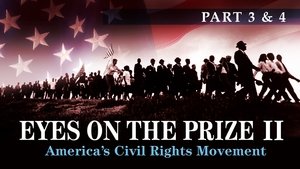
S20 Ep5
10.0
10th Feb 2008
The call for Black Power takes various forms across communities in black America. In Cleveland, Carl Stokes wins election as the first black mayor of a major American city. The Black Panther Party, armed with law books, breakfast programs, and guns, is born in Oakland. Substandard teaching practices prompt parents to gain educational control of a Brooklyn school district but then lead them to a showdown with New York City's teachers' union.
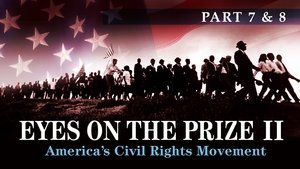
S20 Ep3
10.0
3rd Feb 2008
After a decade-long cry for justice, a new sound is heard in the civil rights movement: the insistent call for power. Malcolm X takes an eloquent nationalism to urban streets as a younger generation of black leaders listens. In the South, Stokely Carmichael and the Student Nonviolent Coordinating Committee (SNCC) move from "Freedom Now!" to "Black Power!" as the fabric of the traditional movement changes.
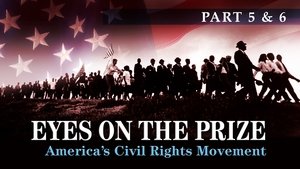
S19 Ep3
10.0
16th Oct 2006
Conclusion of the 1987 documentary “Eyes on the Prize.” Included: events of 1963 and '64, when Mississippi became a battleground in the civil-rights movement; the 1963 assassination of Medgar Evers; the 1964 black voter-registration drive; the march for voting rights from Selma to Montgomery.
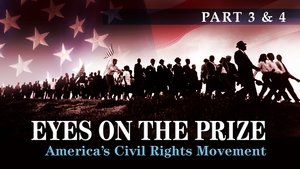
S19 Ep2
10.0
9th Oct 2006
Part 2 of the 1987 documentary "Eyes on the Prize." Included: the 1960 Greensboro, N.C., lunch-counter sit-in; the Student Nonviolent Coordinating Committee; the rise of mass demonstrations in the civil-rights movement; Martin Luther King Jr.'s I Have a Dream speech; children's marches in Birmingham, Ala.
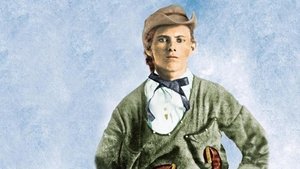
S18 Ep7
10.0
6th Feb 2006
A striking profile of the outlaw (1847-82) is told through reenactments, comments from historians and archival photographs. The hour traces James' life from age 16 to his death at 34 (he was shot in the back), and includes his years as a Southern guerrilla fighter, bandit and killer.
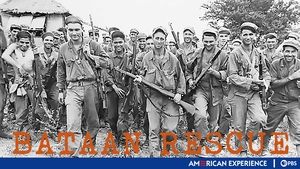
S15 Ep12
10.0
7th Jul 2003
"Bataan Rescue," narrated by Scott Glenn, recalls the daring January 1945 commando raid that freed 513 survivors of the 1942 Bataan Death March who were being held in a Japanese POW camp in the Philippines. Rescuers recall how they did it, and POWs describe what it meant to them. "That's the night I was reborn," says one. "That's my birthday."

S15 Ep11
10.0
21st Apr 2003
"Seabiscuit" recalls the squat and ugly racehorse that riveted the nation in the late 1930s. Interviewees include author Laura Hillenbrand ("Seabiscuit: An American Legend"), who charts the Cinderella story of this "equine catastrophe," as narrator Scott Glenn calls him, and his hard-luck jockey, Red Pollard, who kept getting hurt. But Seabiscuit won, often inspiringly and most notably in the 1940 Santa Anita Derby, in which both the horse and jockey were coming off injuries.
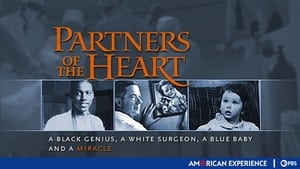
S15 Ep8
10.0
10th Feb 2003
Chronicling the unlikely partnership between a white surgeon and a black "technician" that led to a procedure to correct blue-baby syndrome in 1944. The principals: Vivien Thomas, a black man with only a high-school diploma, and Alfred Blalock, the patrician chief of surgery at Johns Hopkins. Blalock pioneered the surgery to correct the congenital heart defect, but it was Thomas who devised to procedures that were used. And they did it at a time, narrator Morgan Freeman says, when the two "could not share the same lunch table in the Hopkins cafeteria."
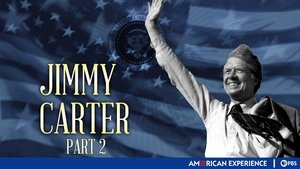
S15 Ep2
10.0
12th Nov 2002
"Hostage," the conclusion of a two-part Jimmy Carter biography, covers his presidency and post-presidency. Human rights were to be "a basic tenet of our foreign policy," Carter declared in 1977, but he was overwhelmed by events in Iran, and economic woes at home led to a "malaise" so severe that the 1978 Camp David accords didn't even give him a boost in the polls. Then came the hostage crisis. But back in Plains, he and Rosalynn regrouped. And now? As former Carter speechwriter Henrdrik Hertzberg puts it: "His values, his devotion to human rights, keep on resonating in a way that his failures and weaknesses don't."
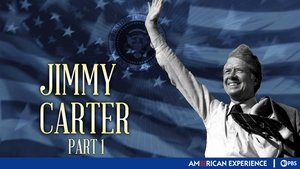
S15 Ep1
10.0
11th Nov 2002
An evocative two-part profile of Jimmy Carter explores how his career has been shaped by what former speechwriter Hendrik Hertzberg calls his "moral ideology." Produced by Adriana Bosch ("American Experience" biographies of Reagan and Grant), the film features comments by Carter's wife, Rosalynn, and son Chip, as well as historians, former Vice President Walter Mondale and a number of key Carter aides. Part 1 ends just after the 1976 campaign, which put Carter in the White House. He was, says Hertzberg, "exactly what the American people would say they want."

S14 Ep5
10.0
13th Jan 2002
Woodrow Wilson reluctantly enters World War I in an effort to "make the world safe for democracy" as this two-part profile concludes. He wins the war but loses the peace, as he's confounded first by the French and British at the Treaty of Versailles in 1919; then by the Republicans in the Senate, who thwart U.S. entry into the League of Nations. Meanwhile, Wilson marries Edith Bolling-Galt (voice of Marion Ross) less than a year after his first wife dies. Edith would emerge as the President's virtual "regent" when Wilson suffers a stroke in 1919. Voice of Wilson: Rene Auberjonois.
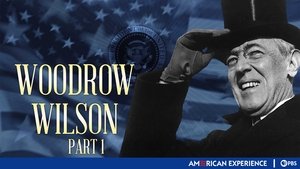
S14 Ep4
10.0
6th Jan 2002
A two-part profile of Woodrow Wilson in which news clips, atmospheric re-creations and readings (Rene Auberjonois and Blair Brown provide the voices of Wilson and his first wife, Ellen) supplement interviews with historians. Part 1 takes Wilson (1856-1924) from his Georgia childhood to the outbreak of World War I -- just as Ellen dies. "He's got to deal with the breakdown in the world," historian John Milton Cooper says. "And he's got to deal with the breakdown in his personal life."
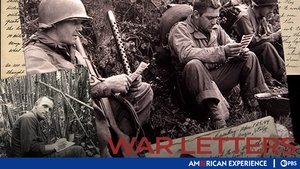
S14 Ep3
10.0
1st Nov 2001
War letters from the American Revolution to the Gulf War are read by 15 actors (including Joan Allen, Edward Norton, Kevin Spacey and Courtney B. Vance). Accompanied by clips, home movies and re-creations, the letters reflect the horror, boredom, anger and, mostly, fear that war engenders. Many readings are followed by notations that the writers had died, but the hour isn't unrelentingly grim. “Pucker up,” one WWII GI writes to his sweetheart on VJ Day. “Here I come.”
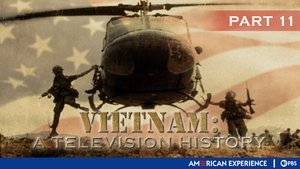
S9 Ep20
10.0
28th Jul 1997
"Vietnam: A Television History" concludes with "The End of the Tunnel," which recalls the 1973 Paris accords and the subsequent collapse of South Vietnam. Included: vivid footage of helicopter evacuations in Saigon during the final hours before the Communists took the city on April 30, 1975.
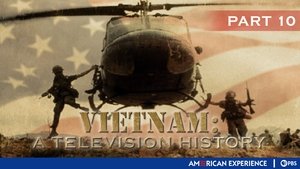
S9 Ep19
10.0
21st Jul 1997
"Vietnam: A Television History - Homefront U.S.A.," traces the widening rift between supporters and opponents of the war, from the first demonstrations in the mid-1960s to the May 1970 Kent State shootings.
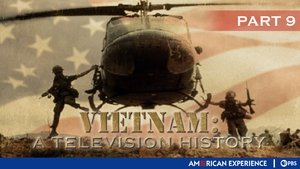
S9 Ep18
10.0
14th Jul 1997
"Vietnam: A Television History": "Peace Is at Hand (1968-73)" recalls the peace negotiations in Paris, including Henry Kissinger's "secret" talks with Le Duc Tho. As the talks dragged on, the U.S. stepped up air attacks.
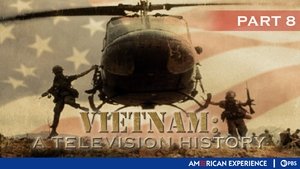
S9 Ep17
10.0
7th Jul 1997
America's involvement in—and secret bombing of—Cambodia and Laos are chronicled as "Vietnam: A Television History" continues. After the bombing halt in August 1973, the Communist Khmer Rouge advanced on the Cambodian capital of Phnom Penh, and finally, in April 1975, the city fell.
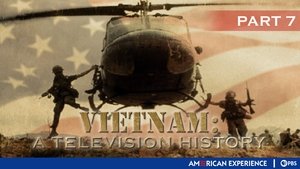
S9 Ep16
10.0
30th Jun 1997
"Vietnam: A Television History": The gradual withdrawal of U.S. troops and their replacement by the South Vietnamese are recalled in "Vietnamizing the War (1968-73)." But morale was low among Americans still in the country, and veterans interviewed recall racial divisions and the availability of drugs.
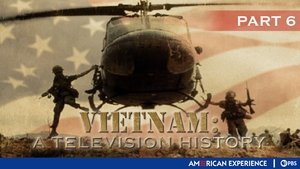
S9 Ep15
10.0
23rd Jun 1997
Vietnam: A Television History": TV-news footage graphically recalls "Tet 1968," the bold North Vietnamese and Vietcong offensive. The attacks gave the enemy a "brilliant political victory" in the U.S, says former Secretary of State Dean Rusk.
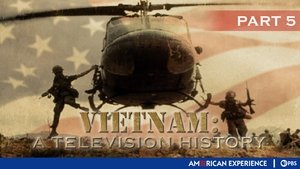
S9 Ep14
10.0
16th Jun 1997
As "Vietnam: A Television History" continues, "America's Enemy (1954-67)" examines the escalating war from the point of view of North Vietnamese leaders and their followers, beginning with the country's partition after the French defeat. Interviewed: former Premier Pham Van Dong.
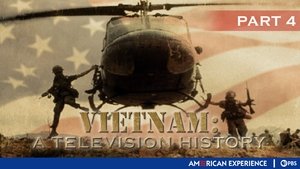
S9 Ep13
10.0
9th Jun 1997
In "America Takes Charge (1965-67)," GIs recall combat experiences during the years of U.S. military escalation. Also: a sequence in which Americans and Vietnamese describe the same operation.
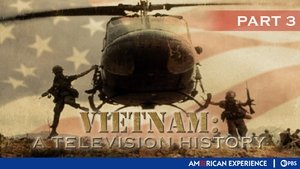
S9 Ep12
10.0
2nd Jun 1997
LBJ Goes to War (1964-65) examines the escalating American involvement following the Tonkin Gulf Resolution. Interviewed: Gen. William Westmoreland (USA Ret.) and former Secretary of State Dean Rusk.
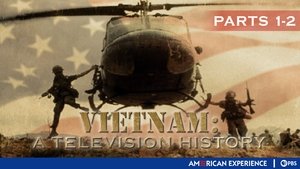
S9 Ep11
10.0
26th May 1997
"Vietnam: A Television History" begins by tracing the "Roots of a War" to French colonialism. "America's Mandarin" looks at the start of America's involvement in Vietnam during the 1950s and '60s.
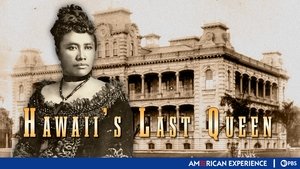
S9 Ep4
10.0
27th Jan 1997
Liliu'okalani moved easily between two worlds -- she had dined at the White House, had been a guest at Buckingham Palace, yet never abandoned her Hawaiian traditions. A writer and composer, she was thrust into a role she was never prepared to play, caught between two opposing forces.
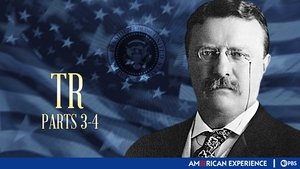
S9 Ep2
10.0
6th Oct 1996
After McKinley's assassination, Roosevelt becomes an "accidental" president. Seeing himself as a crusader, TR uses the presidency to advance his agenda of social reform. He expands the power of the presidential office and comes to dominate American politics. Yet, the night he is elected to a second term, TR announces he will not run again, ultimately weakening his second term.
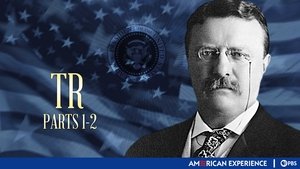
S9 Ep1
10.0
6th Oct 1996
TR is born into a wealthy New York family that has a strong sense of social justice. He fights his severe asthma through a strenuous exercise program. He becomes New York State assemblyman. Then tragedy strikes with the untimely deaths of his beloved first wife and his mother. To escape his grief, he flees to the Dakota Badlands for the rigors of ranch life. When he returns, his political career flourishes; he eventually becomes William McKinley's Vice President.
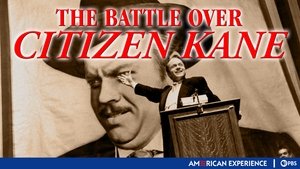
S8 Ep7
10.0
29th Jan 1996
A thinly-veiled portrait of the immensely powerful newspaper magnate William Randolph Hearst, the movie created a buzz long before it was released. Most people thought it the work of a genius, but Hearst set out to destroy the director, Orson Welles, and suppress the movie. Just a year earlier Welles had terrorized the east coast with a radio broadcast simulating an alien invasion. But now the 24-year-old boy-genius had taken on one of the most powerful men in America.
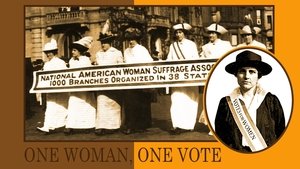
S7 Ep11
10.0
30th Jan 1995
From Elizabeth Cady Stanton's electrifying call to arms at Seneca Falls in 1848, to the last battle for passage of the Nineteenth Amendment in 1920, a recounting of the infighting, the alliances and betrayals, defeats and victories on the way to winning the right to vote. The struggle split the suffragist movement into two opposing forces: the militants who faced imprisonment and riots and those who argued for a quieter, more persuasive ways. Both tactics, it turned out, were needed.

S7 Ep10
10.0
23rd Jan 1995
From Elizabeth Cady Stanton's electrifying call to arms at Seneca Falls in 1848, to the last battle for passage of the Nineteenth Amendment in 1920, a recounting of the infighting, the alliances and betrayals, defeats and victories on the way to winning the right to vote. The struggle split the suffragist movement into two opposing forces: the militants who faced imprisonment and riots and those who argued for a quieter, more persuasive ways. Both tactics, it turned out, were needed.

S6 Ep5
10.0
26th Jan 1994
If any man expressed the anger, struggle and insistence of black people for freedom in the sixties, it was Malcolm X. In Omaha, he was Malcolm Little; later he became "Detroit Red" a small time street hustler. From prison emerged another Malcolm, the fiery, eloquent spokesman for the Nation of Islam. After a trip to Mecca, there was a last transformation -- a new willingness to accept white allies. Who killed him and why has never been fully explained.
S5 Ep11
10.0
15th Feb 1993
She had been a biologist for the federal government when she first took note of the effects of the unregulated use of pesticides and herbicides, especially DDT. Magazines refused to publish her articles because they were afraid of losing advertising. When Rachel Carson published Silent Spring in 1963, she was viciously attacked, called "an ignorant and hysterical woman." But her warning sparked a revolution in environmental policy and created a new ecological consciousness.
S5 Ep5
10.0
18th Nov 1992
He was bumbling, yet ambitious. He volunteered to serve his country, but insisted on being reimbursed for expenses. He was the most famous general of the Revolution but a dismal tactician on the battlefield. Greedy and selfish, service to the colonies would profoundly change him. The man who came to symbolize the American Revolution could also be incredibly brave, generous and an inspirational leader who scorned attempts to participate in any system but a democratic one.
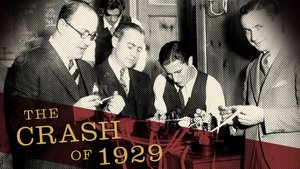
S3 Ep8
10.0
19th Nov 1990
In 1929, while the stock market was rising, there were few critics. It was a "New Era" when everyone could get rich. But it was a small group of bankers, brokers and speculators who by manipulating the stock market grew fabulously wealthy. The film captures the unbounded optimism of the age and the shocking consequences when reality finally hit on October 29th.
S3 Ep5
10.0
22nd Oct 1990
Frank Popiolek was 14 when he came to America in 1911, one of 2 million Polish immigrants who made the journey. He settled in Chicago and became a barber, instilling in his family a love of the "old world" traditions and pride in their Polish heritage. A nostalgic and humorous look at how old world Chicago lives side by side with the new.
S3 Ep1
10.0
27th Aug 1990
At 25, Charles A. Lindbergh arrived in Paris, the first man to fly across the Atlantic -- handsome, talented, and brave -- a hero. But the struggle to wear the mantle of legend would be a consuming one. Crowds pursued him, reporters invaded his private life. His marriage, travels with his wife and the kidnapping and murder of their first child were all fodder for the front page.
S2 Ep9
10.0
28th Nov 1989
Affluent, handsome, light-skinned and blond, he could pass for white. But his message about "economics and jobs" would make him one of the most charismatic black leaders in the 20th century. A U.S. Representative for 25 years, he pushed through social legislation, but his relish for money and fast living eventually led him to political ruin.

S3 Ep4
9.4
15th Oct 1990
He possessed a fateful combination of strengths and weaknesses that propelled him to the White House and then brought him down. One of the most enigmatic modern political figures, Richard Nixon inspired divided passions in America. From his days as a young anti-Communist crusader to the president who astounded the nation with his foreign policy initiatives in China and the Soviet Union, and finally, his resignation in the face of impeachment, Nixon was a tragically insecure man with a bold vision. At the center of American politics for more than 25 years, he continues to arouse both anger and admiration.
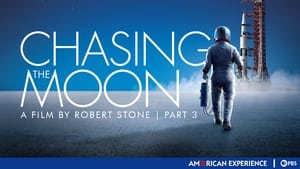
S31 Ep5
9.3
10th Jul 2019
After the immediate celebration of 1968’s successful Apollo 8 mission, underlying questions about the space programme emerged with new intensity as politicized young Americans challenged the nation’s priorities. Nasa pushed brashly forward.
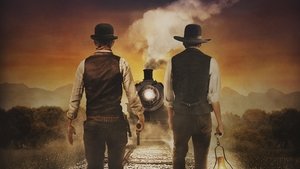
S26 Ep4
9.3
11th Feb 2014
The story of outlaws Butch Cassidy and the Sundance Kid, whose turn-of-the-century exploits made headlines, led them to be pursued by Pinkerton detectives and inspired the popular 1969 film starring Paul Newman and Robert Redford.
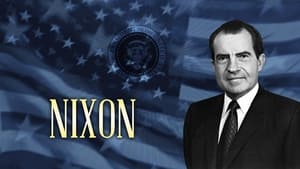
S3 Ep3
9.3
15th Oct 1990
He possessed a fateful combination of strengths and weaknesses that propelled him to the White House and then brought him down. One of the most enigmatic modern political figures, Richard Nixon inspired divided passions in America. From his days as a young anti-Communist crusader to the president who astounded the nation with his foreign policy initiatives in China and the Soviet Union, and finally, his resignation in the face of impeachment, Nixon was a tragically insecure man with a bold vision. At the center of American politics for more than 25 years, he continues to arouse both anger and admiration.
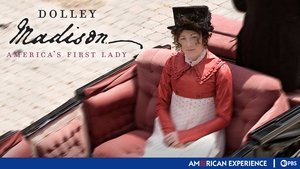
S22 Ep4
9.3
1st Mar 2010
Dolley Madison lived through the two wars that established the U.S., was friends with the first 12 Presidents, and watched America evolve from a struggling young republic to the first modern democracy in the world. She was nicknamed “Queen Dolley,” and when she died in 1849 at the age of 81 — one of the last remaining members of the founding generation - Washington City honored her with the largest state funeral the capital had ever seen for a woman. Dolley Madison features Tony Award-nominee Eve Best (Nurse Jackie) as Dolley Madison and Tony Award-winner Jefferson Mays as James Madison (I Am My Own Wife).
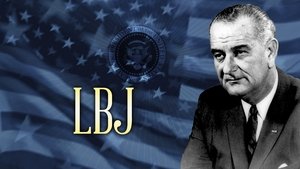
S4 Ep2
9.3
30th Sep 1991
Lyndon Johnson's ascension to the Presidency and the controversial events of his tenure such as the Great Society and the Vietnam War are chronicled here.
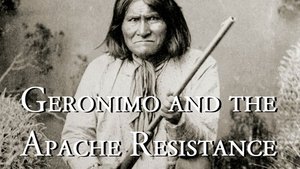
S1 Ep8
9.3
22nd Nov 1988
The story of a tragic collision of two civilizations, each with startlingly different views of one another. In 1886, 5,000 U.S. troops mobilized to capture this one man and his band of followers, who by refusing to move onto a reservation, defied and eluded federal authorities.

S25 Ep4
9.1
29th Jan 2013
An absorbing life story of a farm boy who rose from obscurity to become the most influential American innovator of the 20th century, Henry Ford offers an incisive look at the birth of the American auto industry with its long history of struggles between labor and management, and a thought-provoking reminder of how Ford's automobile forever changed the way we work, where we live, and our ideas about individuality, freedom, and possibility.
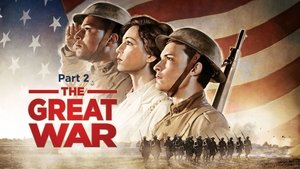
S29 Ep7
9.0
11th Apr 2017
Part 2 of 3. America's entry into World War I is recalled, including the breathtaking speed of mobilization and the profound transformations required for America to play a central role in the conflict.

S28 Ep5
9.0
1st Mar 2016
In the 1950s and early '60s, a small band of high-altitude pioneers exposed themselves to the extreme forces of the space age long before NASA's acclaimed Mercury 7 would make headlines. Though largely forgotten today, balloonists were the first to venture into the frozen near-vacuum on the edge of our world, exploring the very limits of human physiology and human ingenuity in this lethal realm.
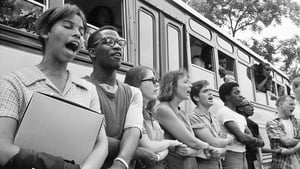
S26 Ep6
9.0
24th Jun 2014
Recalling the summer of 1964 in Mississippi, when student volunteers from around the country joined local activists in an effort to register to vote as many African-Americans as possible. (Due to intimidation and arcane tests, less than seven percent of the state's African-Americans were registered.) Activists also set up schools to teach children about African-American history; and created a rival Democratic Party to challenge the all-white delegation to the 1964 Democratic National Convention.

S26 Ep5
9.0
18th Feb 2014
The story of New York's Pennsylvania Station, which opened to the public in 1910. One of the greatest architectural and engineering achievements of its time, it covered nearly eight acres and required the construction of 16 miles of underground tunnels. It closed its doors some 50 years later, giving way to Madison Square Garden, a high-rise office building and sports complex.
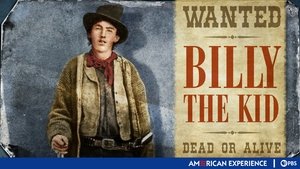
S24 Ep1
9.0
10th Jan 2012
A fascinating look at the myth and the man behind it, who, in just a few short years transformed himself from a skinny orphan boy to the most feared man in the West and an enduring western icon.
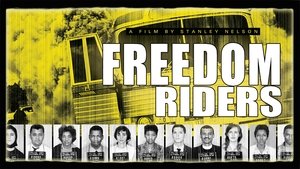
S23 Ep12
9.0
16th May 2011
They called themselves the Freedom Riders, and they managed to bring the president and the entire American public face to face with the challenge of correcting civil-rights inequities that plagued the nation. Veteran filmmaker Stanley Nelson’s inspirational documentary is the first feature-length film about this courageous band of civil-rights activists. Gaining impressive access to influential figures on both sides of the issue, Nelson chronicles a chapter of American history that stands as an astonishing testament to the accomplishment of youth and what can result from the incredible combination of personal conviction and the courage to organize against all odds.
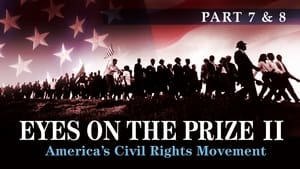
S20 Ep7
9.0
24th Feb 2008
In the 1970s, antidiscrimination legal rights gained in past decades by the civil rights movement are put to the test. In Boston, some whites violently resist a federal court school desegregation order. Atlanta's first black mayor, Maynard Jackson, proves that affirmative action can work, but the Bakke Supreme Court case challenges that policy.
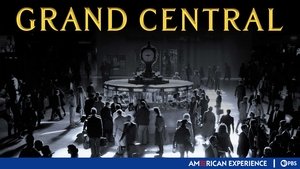
S20 Ep4
9.0
4th Feb 2008
A marvel of engineering, architecture, and vision, the story of the Beaux Arts structure on 42nd Street that forever changed midtown Manhattan.
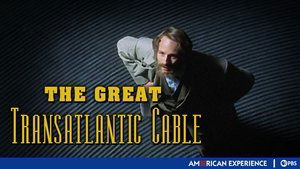
S17 Ep7
9.0
11th Apr 2005
Cyrus Field's struggle to lay telegraph cables across the Atlantic in the 1850s and '60s is chronicled. When Field finally succeeded, in 1866, it marked "the annihilation of space and time," says historian David Czitrom. But the 13-year effort -- recalled here in re-creations and comments from historians and engineers -- included many false starts and one spectacular failure. Still, says Czitrom, "he never let up."
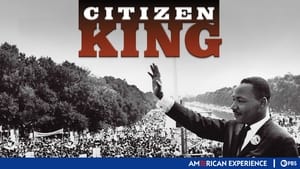
S16 Ep4
9.0
19th Jan 2004
"Citizen King," a reverential chronicle of the final five years of Rev. Martin Luther King Jr.'s life, employs eyewitnesses to the history King made to recall it. Among them: Coretta Scott King, former representative William Gray, author David Halberstam, civil-rights veterans Joseph Lowery, Roger Wilkins and Taylor Branch, long-time political figure Andrew Young, former senator Harris Wofford, former attorney general Ramsey Clark and theologian James Cone.
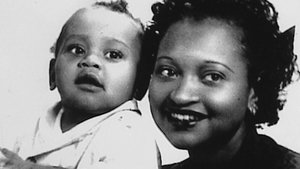
S15 Ep6
9.0
20th Jan 2003
Recalling the 1955 murder of a 14-year-old black youth in the Mississippi delta, an incident that could very well have launched the civil-rights movement. "He was a sacrificial lamb," says Mamie Till of her son Emmett, a fun-loving Chicago teen who was slain after whistling at a white woman outside a general store in Tallahatchee County, Miss. Less than a month after Till's mutilated body was found, two white defendants were acquitted (in 67 minutes) by an all-white jury.
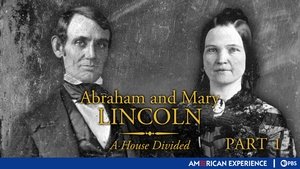
S13 Ep7
9.0
19th Feb 2001
Part 1 and 2 of a six-part chronicle of the Abraham Lincoln-Mary Todd relationship begins with their childhoods and courtship. He, of course, was born into poverty; she, however, grew up in luxury, the daughter of a Kentucky banker and slave owner. (Several of her brothers would die fighting for the South in the Civil War.) While he was something of a rube when they met, she was the opposite, polished and refined. Yet they shared something in common: a love of politics. The marriage of Abraham and Mary Todd Lincoln proves to be a tempestuous affair accented by her temper, his depression and their political ambitions. Included: his elections to the U.S. House of Representatives and, later, the presidency.
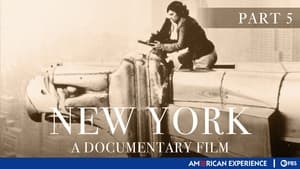
S12 Ep5
9.0
18th Nov 1999
"Cosmopolis: 1914-1931" recalls the WWI years and the "Roaring '20s" in the city that F. Scott Fitzgerald called "the land of ambition and success." Of course, an egg was laid on Wall Street in 1929, but before that happened the city gave rise, narrator David Ogden Stiers says, "to a new culture, a mass culture" that was broadcast live on radio networks headquartered in New York.
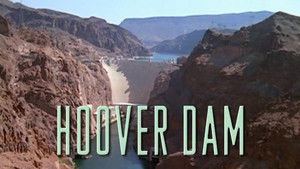
S11 Ep3
9.0
18th Jan 1999
Rising more than 700 feet above the raging waters of the Colorado River, it was called one of the greatest engineering works in history. Hoover Dam, built during the Great Depression, drew men desperate for work to a remote and rugged canyon near Las Vegas. There they struggled against heat, choking dust and perilous heights to build a colossus of concrete that brought electricity and water to millions and transformed the American Southwest.
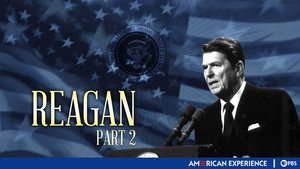
S10 Ep7
9.0
24th Feb 1998
The conclusion of a biography of Ronald Reagan focuses on the president's second term and includes his defense-spending policies and the Iran-Contra scandal.
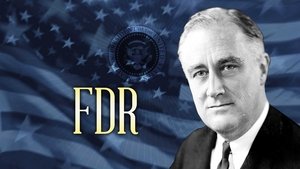
S7 Ep4
9.0
13th Oct 1994
The portrait of Franklin Delano Roosevelt concludes with his years as preside (1932 until his death in 1945), how he dealt with the Great Depression, and his link with Winston Churchill during World War II.

S7 Ep3
9.0
13th Oct 1994
In episode 3, the subject is FDR's leadership of America during the Great Depression. The nation turned to this son of great wealth for a host of social programs that promised a New Deal for the common man.
S2 Ep12
9.0
19th Dec 1989
Born into slavery, she became a journalist and newspaper owner in Memphis, and was radicalized following the lynching of three friends. Her crusade against lynching led to death threats, but she bravely continued for the rest of her life to call for an end to sexism and racism.
S1 Ep11
9.0
13th Dec 1988
Father Charles Coughlin, a Roman Catholic priest from Michigan, uses the new power of radio to become one of the first media stars; every Sunday he would broadcast his message railing against the nation's economic and social system to millions of listeners caught in the grip of the Depression.
S1 Ep6
9.0
8th Nov 1988
A year in the life of Wyoming cowboys and the ranching families who have lived in Big Piney for six generations. Although very much the same as it was one hundred years ago -- tough, lonely, but still romantic -- ranching is now a threatened way of life.
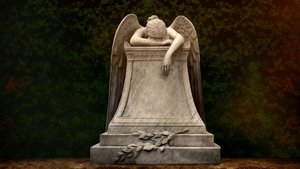
S27 Ep5
8.9
10th Feb 2015
By the dawn of the 19th century, the most deadly killer in human history, tuberculosis, had killed one in seven of all the people who had ever lived. Throughout the 1800s, the disease struck America with a vengeance, ravaging communities and touching the lives of almost every family. The battle against the deadly bacteria had a profound and lasting impact on America. It shaped medical and scientific pursuits, social habits, economic development, western expansion, and government policy. Yet both the disease and its impact are poorly understood; in the words of one writer, tuberculosis is our "forgotten plague."

S25 Ep6
8.8
29th Oct 2013
A broadcast that struck fear into an already anxious nation, Orson Welles' War of the Worlds radio broadcast was the most famous alien invasion that never happened.
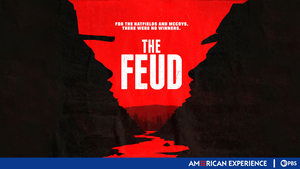
S31 Ep7
8.8
10th Sep 2019
Anderson Hatfield and Randolph McCoy, the patriarchs of the legendary feud, were entrepreneurs seeking to climb up from hardship after fierce economic competition and rapid technological change had turned their lives upside down. When members of both families took their grievances to court, their dispute escalated into a war between two families and a struggle between two states. The Feud reveals more than an isolated story of mountain lust and violence between “hillbillies” — the Hatfield - McCoy feud was a microcosm of the tensions inherent in the nation’s rapid industrialization after the Civil War.
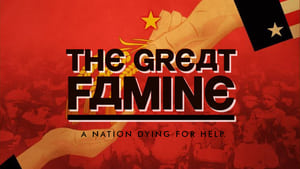
S23 Ep9
8.8
11th Apr 2011
The little-known story of the American effort to relieve starvation in the new Soviet Russia in 1921, The Great Famine is a documentary about the worst natural disaster in Europe since the Black Plague in the Middle Ages. Five million Soviet citizens died. Half a world away, Americans responded with a massive two-year relief campaign, championed by Herbert Hoover, director of the American Relief Administration.

S4 Ep1
8.8
30th Sep 1991
LBJ's career started in 1938 when he was elected a congressman, one of the youngest ever. He was elected to the Senate in 1948 under a cloud of suspicion. LBJ won by only 87 votes. In 1954, when the Democrats took over the Senate, LBJ became the youngest majority leader ever at age 46. In 1957, LBJ engineered passage of the first civil rights bill since Reconstruction, but the bill had too many compromises and no teeth. By 1960, LBJ felt he was ready for the presidency, but John Kennedy got there first and then picked LBJ as his vice president.

S3 Ep2
8.8
15th Oct 1990
He possessed a fateful combination of strengths and weaknesses that propelled him to the White House and then brought him down. One of the most enigmatic modern political figures, Richard Nixon inspired divided passions in America. From his days as a young anti-Communist crusader to the president who astounded the nation with his foreign policy initiatives in China and the Soviet Union, and finally, his resignation in the face of impeachment, Nixon was a tragically insecure man with a bold vision. At the center of American politics for more than 25 years, he continues to arouse both anger and admiration.
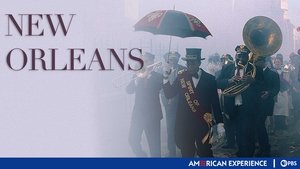
S19 Ep9
8.8
12th Feb 2007
A history of New Orleans, from its origins as a French settlement to its post-Katrina present. Included: archival photos and film footage; and comments from New Orleans historians, residents and scholars on subjects like the birth of jazz, the city's struggles with integration and segregation, the white flight to the suburbs in the 1950s and the return of Katrina survivors.
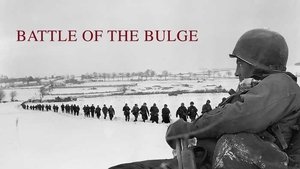
S7 Ep7
8.8
9th Nov 1994
The history of World War II's "Battle of the Bulge", when the German army launched a major surprise counteroffensive against the American forces that caught them almost completely off-guard, sweeping away major portions of the front line, pushing deep into the rear areas and causing tens of thousands of casualties before it was finally halted.

S22 Ep6
8.7
26th Apr 2010
What drove a company of American soldiers — ordinary young men from around the country — to commit the worst atrocity in American military history? American Experience focuses on the 1968 My Lai massacre, its subsequent cover-up, and the heroic efforts of the soldiers who broke ranks to try to halt the atrocities and then bring them to light.
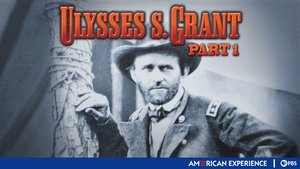
S14 Ep13
8.7
1st Apr 2002
A moody two-part biography of Ulysses S. Grant (1822-85). Part 1, "Warrior," quickly sketches his largely unsuccessful pre-Civil War life and ends on Good Friday 1865, when his wife told him to turn down a theater invitation because she didn't like the company of Mary Lincoln. During the war, Grant owed his success to his ability to treat his often unruly troops as he did his horses: calmly, firmly, quietly. But if he was a hero at Fort Donelson and Vicksburg, he's also described as being a "butcher" at Shiloh and Cold Harbor.
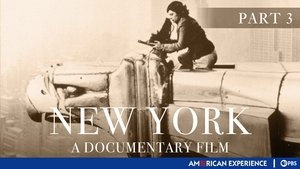
S12 Ep3
8.7
16th Nov 1999
"Sunshine and Shadow: 1865-1898" During the Gilded Age, New York "was home to the greatest concentration of wealth in human history," says narrator David Ogden Stiers. And, he adds, "the greatest concentration of poverty." This episode surveys that dichotomy, from Fifth Avenue mansions to slums documented by Jacob Riis in "How the Other Half Lives." Also recalled: the fall of William H. "Boss" Tweed ("he took a fall for the system," claims Pete Hamill).
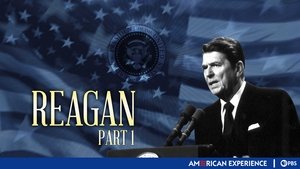
S10 Ep6
8.7
23rd Feb 1998
The life and legacy of Ronald Reagan are examined in a two-part study, beginning with his impoverished childhood; his start as a radio sportscaster and career as an actor; his two terms as governor of California; and his 1980 election to the Presidency. Among those interviewed: Nancy Reagan and Ron Reagan Jr.

S7 Ep2
8.7
12th Oct 1992
In this second episode, the subject is FDR's courageous fight with polio. With his wife Eleanor Roosevelt at his side, FDR, wins the Democratic nomination for president. He takes office at the beginning of the Great Depression. Exhorting the nation to keep the faith, FDR utters his famous words: "The only thing we have to fear is fear itself."
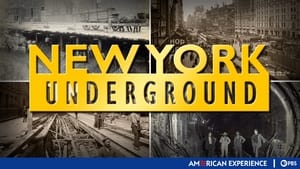
S9 Ep7
2.0
17th Feb 1997
It began with the blizzard of 1888 -- mountains of snow twenty feet high, horse cars and omnibuses abandoned, the city paralyzed. There was no doubt New York needed a public transportation system. It would be an American epic -- the largest public works project in history, overshadowed only by the Panama Canal.

S19 Ep5
2.0
30th Oct 2006
The history of yellow fever, and how it was determined that the disease was transmitted by mosquitoes. Included: the work of Carlos Finlay, the Cuban physician who found the link to the insects; how Finlay's theory influenced Jesse Lazear and James Carroll, scientists who were part of Walter Reed's team after Reed was sent by the U.S. to Havana to find the cause of the disease when American troops were sent to Cuba following the Spanish-American War.
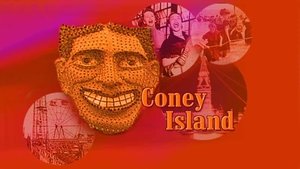
S3 Ep13
3.0
4th Feb 1991
Before there was Disneyland, there was Coney Island. By the turn of the century, this tiny spit of New York real estate was internationally famous as the world's most remarkable carnival of delights, offering everything from the bawdy to the surreal. The hot dog was invented here; so was the roller coaster.
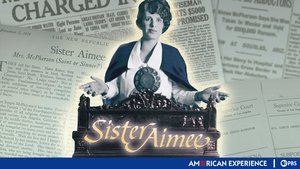
S19 Ep10
3.5
2nd Apr 2007
A profile of Sister Aimee Semple McPherson (1890-1944), a popular Pentecostal evangelist during the 1920s and '30s. Included: comments from biographer Matthew Avery Sutton, author Daniel Mark Epstein, and Boston University religion professor Stephen Prothero.
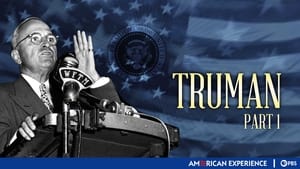
S10 Ep1
4.0
5th Oct 1997
A study of Harry S. Truman, the 33rd president. Part 1 covers his service during World War I; his accomplishments as a small-time Kansas City politician; his two terms as a Missouri senator.
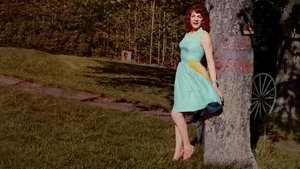
S35 Ep6
5.6
27th Jun 2023
In the 1950s and ’60s, an underground network of transgender women and cross-dressing men found refuge at a house in the Catskills region of New York. Known as Casa Susanna, the house provided a safe place to express their true selves.
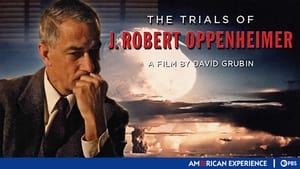
S21 Ep1
5.8
26th Jan 2009
A brilliant scientist, Oppenheimer was tasked with the development of the atomic bomb in the top-secret Manhattan Project at Los Alamos, New Mexico during World War II.
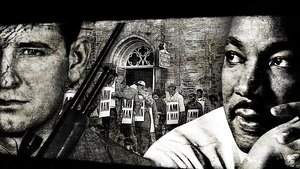
S22 Ep7
5.8
3rd May 2010
On April 4, 1968, James Earl Ray shot and killed Dr. Martin Luther King. This is the fateful narrative of the killer and his prey, set against the seething, turbulent forces in American society. Roads to Memphis is told through eyewitness testimony from King's inner circle and the officials involved in Ray’s capture and prosecution following an intense two-month international manhunt.
S1 Ep10
6.0
6th Dec 1988
The evolution of rhythm and blues through the careers of singers Ruth Brown and Charles Brown, from the 1940s into the 50s, with contemporary performances by both.
S5 Ep9
6.0
8th Feb 1993
When he died in 1931 in a plane crash on his way to Hollywood to sign a film contract, the President called it a "national loss." The funeral was broadcast live on CBS Radio to Europe, South America and Asia. As Notre Dame's football coach, Knute Rockne galvanized attention to his "Fighting Irish" and was a pivotal figure in the sudden rise of sports to a position of enormous power in American life.
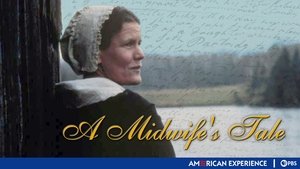
S10 Ep3
6.0
19th Jan 1998
Chronicling the efforts of historian Laurel Thatcher Ulrich to gather facts about early American life through the diaries of Maine resident and midwife Martha Ballard (1735?-1812). Included: dramatizations of some of the passages; and the use of town documents to supplement some of Ballard's accounts.

S17 Ep4
6.0
7th Feb 2005
Recalls the construction of the 1500-mile "shortcut to Tokyo" through Canada in 1942 by 11,000 U.S. troops (4,000 of them black). It wasn't the Army's greatest World War II triumph, but it was one of the first, and it gave Americans, who feared a Japanese buildup in the Aleutians, a needed morale boost. This hour is light on military and engineering detail, and packed with proud GIs recalling mud, cold and toil.
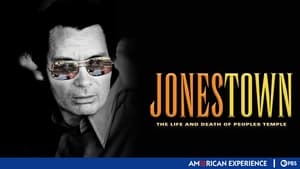
S19 Ep11
6.0
9th Apr 2007
Examines the story behind the November 1978 mass murder-suicide in Jonestown, Guyana, where more than 900 people were led to their deaths by cult leader Jim Jones. Included: comments from Jones' son, Jim Jr.; survivor Stanley Clayton; and Hue Fortson, whose wife and child died in the incident.

S23 Ep1
6.0
11th Oct 2010
A New Adam explores the origins of Christian religion in America and examines how the New World changed the faiths that the settlers brought with them. A New Eden explores how an unlikely alliance between evangelical Baptists and enlightenment figures like Thomas Jefferson served as the foundation of American religious liberty.
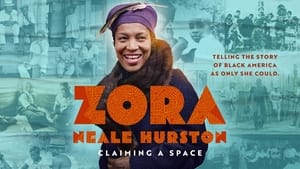
S35 Ep2
6.1
17th Jan 2023
Meet the influential author and key figure of the Harlem Renaissance. Also a trained anthropologist, Zora Neale Hurston collected folklore throughout the South and Caribbean — reclaiming, honoring and celebrating Black life on its own terms.
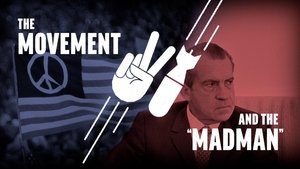
S35 Ep4
6.1
28th Mar 2023
Discover the story of the 1969 showdown between President Nixon and the antiwar movement. Told through firsthand accounts, the film reveals how movement leaders mobilized disparate groups to create two massive protests that changed history.

S16 Ep6
6.3
9th Feb 2004
"Modern dishes for modern living" (and they "burped," no less), sold by women at "home parties." This slice of 1950s Americana is recalled in "Tupperware!" "The era and the product were made for each other," says one of the Tupperware "ladies" who are interviewed throughout the hour. Husbands are interviewed too because Tupperware was oftentimes a family affair, with the men working behind the scenes. The man in charge: Earl Tupper, who invented the sealable plastic containers. But a woman, Brownie Wise, developed Tupperware's phenomenally successful marketing plan. What gives "Tupperware!" its bite is the fact that Tupper and Wise didn't get along.
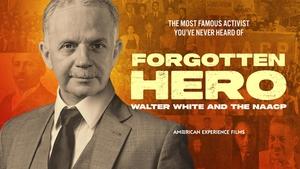
S37 Ep1
6.4
24th Feb 2025
While many consider the birth of the civil rights movement to be 1955, when Rosa Parks refused to give up her seat on an Alabama bus, the stage had been set decades before by activists of the National Association for the Advancement of Colored People. Some of the NAACP leaders are familiar, including W.E.B. Du Bois and Thurgood Marshall, but Walter White, head of the NAACP from 1929 to 1955, has been all but forgotten. With his blond hair and blue eyes, Walter White looked white; he described himself as “an enigma, a Black man occupying a white body.” Like virtually all light-skinned African Americans of his day, White was descended from enslaved Black women and powerful white men. But he was Black — by law, identity, and conviction and spent his entire life fighting for Black civil rights. Forgotten Hero: Walter White and the NAACP traces the life of this neglected civil rights hero and seeks to explain his disappearance from our history.
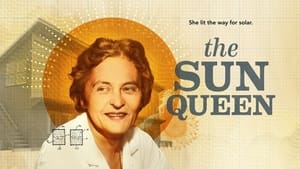
S35 Ep5
6.6
4th Apr 2023
Scientist Mária Telkes dedicated her career to harnessing the power of the sun. Though undercut and thwarted by her male colleagues, she persevered to design the first successfully solar-heated house in 1948 and held more than 20 patents.

S37 Ep7
6.6
28th Oct 2025
Discover how Henry Kissinger's anti-Communist zeal would shape U.S. foreign policy in Vietnam, China, Chile, and the Soviet Union in the second half of the 20th century, through the voices of historians and colleagues.
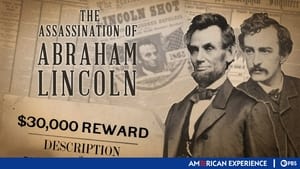
S21 Ep3
6.7
9th Feb 2009
On April 14, 1865, Abraham Lincoln was assassinated at Ford’s Theatre in Washington, D.C. Over the next twelve days, as a fractured nation mourned, the largest manhunt ever attempted closed in on his assassin, the renowned 26-year-old actor John Wilkes Booth. The Assassination of Abraham Lincoln recounts this great American drama: two tumultuous months when the joy of peace was shattered by the heartache of Lincoln’s death. Featuring Will Patton (Numb3rs, A Mighty Heart) as the voice of the assassin and narrated by Academy Award-winning actor Chris Cooper (Seabiscuit, Adaptation), the film includes interviews with the nation’s foremost Lincoln scholars, who recount a great American drama: two tumultuous months when the joy of peace was shattered by the heartache of Lincoln’s death.

S35 Ep7
6.7
11th Sep 2023
The Busing Battleground viscerally captures the class tensions and racial violence that ensued when Black and white students in Boston were bused for the first time between neighborhoods to comply with a federal desegregation order.
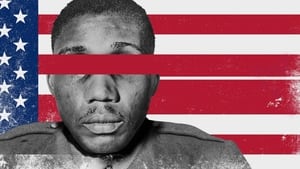
S33 Ep3
6.8
30th Mar 2021
In 1946, Isaac Woodard, a Black army sergeant on his way home to South Carolina after serving in WWII, was pulled from a bus for arguing with the driver. The local chief of police savagely beat him, leaving him unconscious and permanently blind.

S37 Ep6
6.8
27th Oct 2025
The story of Henry Kissinger, the enigmatic powerbroker who served in the topmost echelons of U.S. diplomacy. Celebrated or reviled, his contradictions reflect those central to late 20th century U.S. foreign policy. With interviews from proteges and colleagues, Kissinger endeavors to understand his relentless drive for power, and how his policies shaped today’s world.
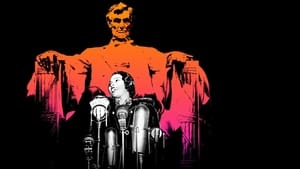
S33 Ep2
6.8
15th Feb 2021
Explore the fascinating life of celebrated singer Marian Anderson. In 1939, after being barred from performing at Constitution Hall because she was Black, she triumphed at the Lincoln Memorial in what became a landmark moment in American history.

S35 Ep9
6.8
30th Oct 2023
The War on Disco explores the culture war that erupted over the rise of Disco music. The hostility came to a head on July 12, 1979, when a riot led by rock fans broke out at “Disco Demolition Night” during a baseball game in Chicago
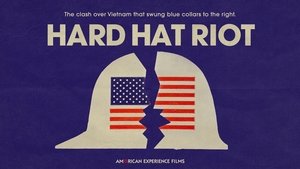
S37 Ep5
6.9
30th Sep 2025
Hard Hat Riot tells the story of a struggling metropolis, a flailing president, a divided people, and a bloody juncture when the nation violently diverged ― culminating in a new political and cultural landscape that radically redefined American politics and foreshadowed the future.
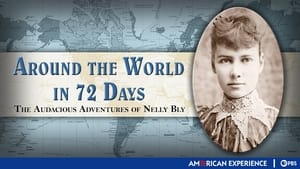
S9 Ep9
7.0
28th Apr 1997
At the age of nineteen, Nellie Bly talked her way into an improbable job on a newspaper, then went on to become "the best reporter in America." She was serious and spunky. To expose abuse of the mentally ill, she had herself committed. But when she travelled around the world in just 72 days, beating Jules Verne's fictional escapade, she turned herself into a world celebrity.
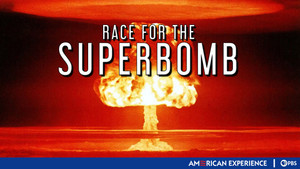
S11 Ep2
7.0
11th Jan 1999
At the dawn of the Cold War, the United States initiated a top secret program in New Mexico to build a weapon even more powerful than the atomic bomb dropped on Japan. A world away, on the frozen steppes of Siberia, the Soviet Union began a similar effort. A web of spies and scientists, intrigue and deception marked the race to develop the hydrogen bomb, a weapon that would change the world.
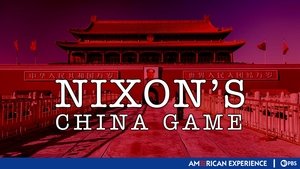
S12 Ep8
7.0
31st Jan 2000
Charting the tortuous three-year gambit that led to Richard Nixon's historic February 1972 visit to the People's Republic of China. What it did, says narrator David Ogden Stiers, was “alter the global balance of power.” How he did it is chronicled in vintage footage and interviews with major players, including Henry Kissinger and Alexander Haig, as well as Chinese and Soviet officials, and Nixon himself (in a 1977 TV interview).
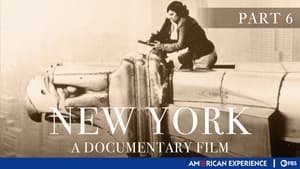
S14 Ep1
7.0
10th Sep 2001
"City of Tomorrow (1929-45)" focuses on Mayor Fiorello LaGuardia, who used his close ties to FDR to make the city "a gigantic laboratory of civic reconstruction"; and master builder Robert Moses, who "adapted a 19th century city to 20th century circumstances," says historian Kenneth Jackson. The biggest one: the car. Says narrator David Ogden Stiers: "It challenged all previous assumptions about urban life."
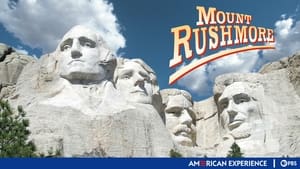
S14 Ep6
7.0
20th Jan 2002
Chronicling the 16-year struggle (1925-41) to fashion Mount Rushmore in South Dakota's Black Hills, and profiling sculptor Gutzon Borglum, its creator. Borglum was 60 when plans for Rushmore were announced and he died not long after the final busts were completed. In between, money was often scarce and the granite from which the likenesses were hewn was crumbly. But Borglum wouldn't be denied, and he had foresight: He planned for 300,000 years' worth of weather erosion.
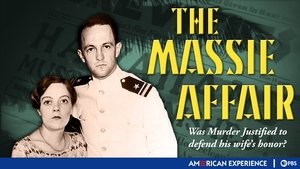
S17 Ep8
7.0
18th Apr 2005
"The Massie Affair" chronicles a 1931 Honolulu rape case involving a young white Navy wife that became even more serious when one of the acquitted Hawaiian defendants was later kidnapped and murdered. Although marital discord and social "honor" play into the story, it's mostly about stark racial injustice that touched even the White House. It uncovers "cold, hard truths about America and the people who ruled it."
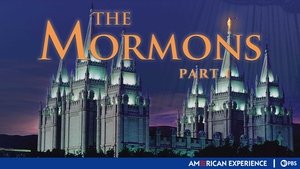
S19 Ep13
7.0
30th Apr 2007
Historian Sarah Barringer Gordon says of the LDS Church "that from the moment of its birth, Mormons were under a kleig light." This insightful documentary explores the religion's roots, from prophet Joseph Smith's 1827 discovery of the golden plates that formed the Book of Mormon to the cycle of persecution and exodus that followed the religion's adherents for much of the 19th century. Included: a look at the practice of plural marriage; comments from church elders and scholars.
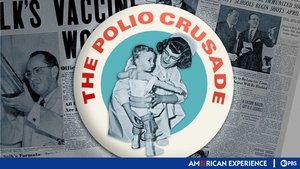
S21 Ep2
7.0
2nd Feb 2009
The story of the polio crusade pays tribute to a time when Americans banded together to conquer a terrible disease. The medical breakthrough saved countless lives and had a pervasive impact on American philanthropy that continues to be felt today.
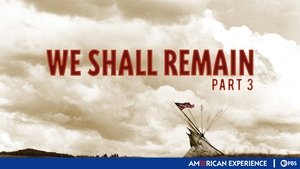
S21 Ep7
7.0
27th Apr 2009
The Cherokee would call it Nu-No-Du-Na-Tlo-Hi-Lu, “The Trail Where They Cried.” On May 26, 1838, federal troops forced thousands of Cherokee from their homes in the Southeastern United States, driving them toward Indian Territory in Eastern Oklahoma. More than 4,000 died of disease and starvation along the way.
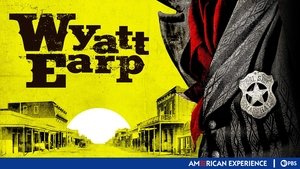
S22 Ep2
7.0
25th Jan 2010
Wyatt Earp has been portrayed in countless movies and television shows by some of Hollywood's greatest actors, including Henry Fonda, Jimmy Stewart, and more recently, Kevin Costner, but these popular fictions often belie the complexities and flaws of a man whose life is a lens on politics, justice and economic opportunity in the American frontier.
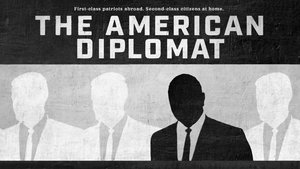
S34 Ep2
7.0
15th Feb 2022
Discover how three Black diplomats broke racial barriers at the US State Department during the Cold War. Asked to represent the best of American ideals abroad while facing discrimination at home, they left a lasting impact on the Foreign Service.
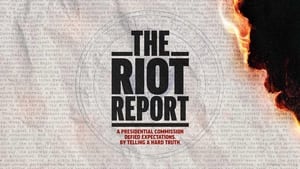
S36 Ep5
7.0
21st May 2024
When Black neighborhoods across America erupted in violence during the summer of 1967, President Johnson appointed a commission to determine what happened, why it happened, and what could be done to keep it from happening again. The bi-partisan commission’s final report offered a shockingly unvarnished assessment of American race relations that would doom its finding to political oblivion.
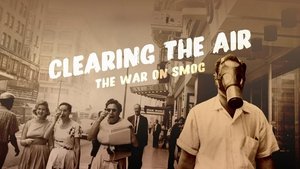
S37 Ep4
7.1
26th Aug 2025
A chronicle of how Los Angeles' devastating smog problem in the 1940s and 50s led to the creation of the Environmental Protection Agency (EPA) and the Clean Air Act.
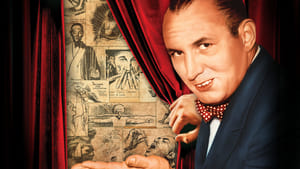
S27 Ep1
7.1
6th Jan 2015
Robert Ripley's obsession with the odd and keen eye for the curious made him one of the most successful men in America during the Great Depression. Over three decades, his Believe It or Not! franchise grew into an entertainment empire, expanding from newspapers to radio, film and, ultimately, television. Americans not only loved his bizarre fare, but were fascinated by the man himself, and the eccentric, globetrotting playboy became an unlikely national celebrity. This is the story of the man who popularized the iconic phrase, and proof of why we still can’t resist his challenge to “Believe it — or not!”
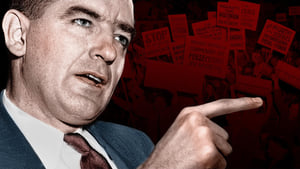
S32 Ep1
7.1
6th Jan 2020
McCarthy chronicles the rise and fall of Joseph McCarthy, the Wisconsin senator whose zealous anti-communist crusade would test the limits of American decency and democracy.
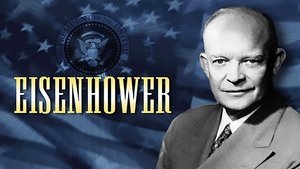
S6 Ep3
7.2
10th Nov 1993
Dwight D. Eisenhower was a decorated general, a skillful politician, a tough Cold War adversary and one of America's least understood presidents. Part of the award-winning Presidents collection.
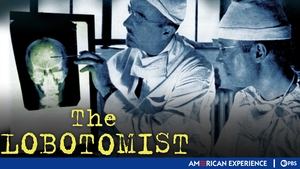
S20 Ep2
7.2
21st Jan 2008
In the 1940s Dr. Walter Freeman gained fame for perfecting the lobotomy, then hailed as a miracle cure for the severely mentally ill. But within a few years, lobotomy was labeled one of the most barbaric mistakes of modern medicine.
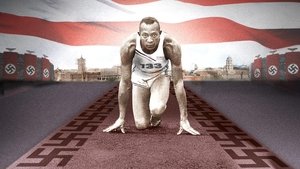
S24 Ep7
7.2
1st May 2012
Despite Jesse Owens' remarkable victories in the face of Nazi racism at the 1936 Berlin Olympics, the athlete struggled to find a place for himself in a United States that was still wrestling to overcome its own deeply entrenched bias.
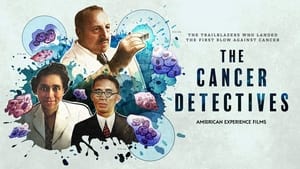
S36 Ep3
7.2
26th Mar 2024
The untold story of the first-ever war on cancer and the coalition of people who fought tirelessly to save women from cervical cancer: a Greek immigrant, Dr. George Papanicolaou; his intrepid wife, Mary; Japanese-born artist Hashime Murayama; Dr. Helen Dickens, an African American OBGYN in Philadelphia; and an entirely new class of female scientists.
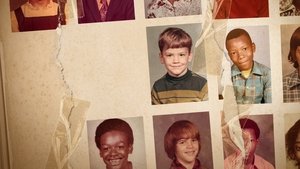
S35 Ep8
7.2
12th Sep 2023
When the Supreme Court issued an order to fully and immediately desegregate schools in October 1969, Leland Mississippi finally met the demand put forth in the 1954 Brown v Board of Education decision. In the fall of 1970, a group of children entered school as part of the first class of Black and white students who would attend all 12 grades together.

S37 Ep2
7.2
24th Mar 2025
The emotional and dramatic story of the decades-long push for equality and accessibility that culminated in the passage of the Americans with Disabilities Act (ADA) in 1990. A story of courage and perseverance, the film highlights the determined people who literally put their bodies on the line to achieve their goal and change the lives of all Americans.
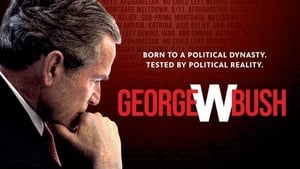
S32 Ep4
7.2
4th May 2020
The latest in our award-winning series of presidential biographies, this film looks at the life and presidency of George W. Bush, from his unorthodox road to the presidency to the terrorist attacks of 9/11 and the myriad of challenges he faced over his two terms, from the war in Iraq to the 2008 financial crisis.
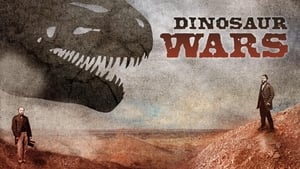
S23 Ep5
7.3
17th Jan 2011
From PBS and American Experience - In the summer of 1868, paleontologist Othniel Charles Marsh boarded a Union Pacific train for a sightseeing excursion through the heart of the newly opened American West. While most passengers simply saw magnificent landscapes, Marsh soon realized he was traveling through the greatest dinosaur burial ground of all time.
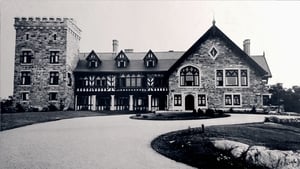
S30 Ep2
7.3
16th Jan 2018
In the fall of 1940, British Prime Minister Winston Churchill delivered his country’s most valuable military secret — a revolutionary radar component — to a Wall Street tycoon, Alfred Lee Loomis. Using his connections, his money, and his brilliant scientific mind, Loomis and his team of scientists developed radar technology that played a more decisive role than any other weapon in World War II.
S1 Ep2
7.3
11th Oct 1988
While the U.N. debated strategies for control of atomic energy, the U.S. Navy was preparing two highly-publicized nuclear tests. Seven hundred fifty cameras were shipped to Bikini to be used for a major propaganda film. Bikinians had no say about turning their idyllic island into an atomic test site. Forty years later, their home would still be too contaminated to support human life.
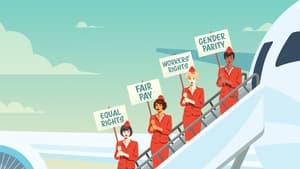
S36 Ep2
7.3
20th Feb 2024
The story of the pioneering women who changed the world while flying it. Maligned as feminist sellouts, “stewardesses,” as they were called, were on the frontlines of a battle to assert gender equality and transform the workplace.
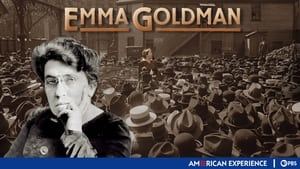
S16 Ep7
7.4
12th Apr 2004
Recalling Emma Goldman (1869-1940), the fiery and formidable radical whose life, says narrator Blair Brown, was "dedicated to free speech, free thought and free love." This profile is sympathetic to Goldman, but she doesn't get a free ride. Indeed, historian Kevin Baker calls her anarchism "jaw-droppingly naive," and no one challenges that. No one denies her passion, either. Says playwright Tony Kushner, "She lived a life on fire."

S32 Ep5
7.4
5th May 2020
George W. Bush, part two continues through Bush’s second term, as the president confronts the devastating impact of Hurricane Katrina and the most serious financial crisis since the Great Depression.

S33 Ep6
7.4
13th Sep 2021
Discover the story of the Supreme Court’s first female justice. A pioneer who both reflected and shaped an era, she was the deciding vote in cases on some of the 20th century’s most controversial issues—including race, gender and reproductive rights.
S1 Ep1
7.5
4th Oct 1988
From Enrico Caruso to the ordinary San Franciscan, this film presents vivid memories of those trapped in the terrifying event of 1906. Four hundred eighty square blocks were reduced to rubble; thousands were killed, tens of thousands left homeless. Then the heroic struggle to rebuild a city from the ashes began.
S2 Ep1
7.5
3rd Oct 1989
The first around-the-world air race, sponsored by the Army Air Service to prove that the airplane had a commercial future, was the ultimate test of man and machine. Four pilots took off in single-engine, open-cockpit planes; 175 days later, two remaining pilots would land where they'd begun, in Seattle.
S4 Ep9
7.5
6th Jan 1992
When CBS premiered The $64,000 Question in 1955, the show was more than a hit; it was a national phenomenon. More quiz shows followed. What the audience was to learn, much later, was that many of these shows were fixed. Slowly, painfully, the deceit unravelled. A look at the formative years of television and the scandal's impact on the TV business and a naive America.
S5 Ep7
7.5
11th Jan 1993
John Phillip Sousa became America's favorite bandmaster, but band music wasn't Sousa's only passion. He was the first to bring the classics -- Verdi, Wagner, Puccini -- to a burgeoning American middle class. Wildly popular, his was the first large musical organization to go on tour and make music pay. He helped give birth to that great American institution, the small town marching band.
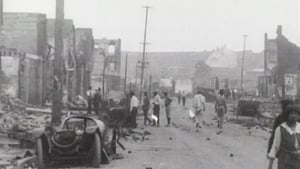
S5 Ep12
7.5
1st Mar 1993
In Tulsa, the community of Greenwood was a place where blacks had some measure of financial, social and political independence. Burned to the ground in 1921 by angry whites, Greenwood was rebuilt and boasted the largest concentration of black businesses in the country. In a nostalgic celebration of old fashioned neighborhood life, the black residents of "T-Town" relive their community's remarkable rise and ultimate decline.

S6 Ep4
7.5
10th Nov 1993
Dwight D. Eisenhower was a decorated general, a skillful politician, a tough Cold War adversary and one of America's least understood presidents. Part of the award-winning Presidents collection.
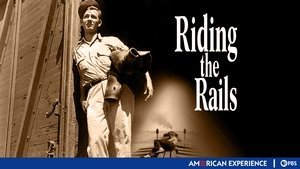
S10 Ep9
7.5
13th Apr 1998
During the Depression-era 1930's, tens of thousands of teenagers hopped freight trains in search of a better life elsewhere. What they found was a mixture of adventure, camaraderie, hardship and loneliness. The evocative stories of teen hoboes crisscrossing America during tough times.
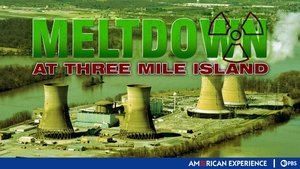
S11 Ep6
7.5
22nd Feb 1999
At 4:00am on March 28, 1979, a reactor at the Three Mile Island nuclear power facility near Harrisburg, Pennsylvania suddenly overheated, releasing radioactive gasses. During the ensuing tension-packed week, scientists scrambled to prevent the nightmare of a meltdown, officials rushed in to calm public fears, and thousands of residents fled to emergency shelters. Equipment failure, human error, and bad luck would conspire to create America's worst nuclear accident.
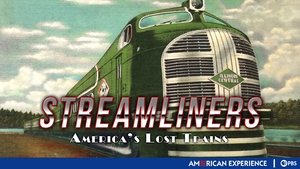
S13 Ep5
7.5
5th Feb 2001
Recalling the stainless steel trains that crisscrossed the country in high style (and at speeds of greater than 100 mph) during the 1930s and '40s. The streamliners -- most notably the Union Pacific's "Little Zip" and the Burlington Railroad's Zephyr -- increased railroad ridership (and profits) dramatically, led to a sleek-is-chic design revolution and even offered a measure of psychological uplift during the Depression.

S14 Ep2
7.5
17th Sep 2001
Conclusion. "The City and the World" begins in 1945, with New York "at the pinnacle," says historian David McCullough. By 1975 it was: "Ford to City: Drop Dead," as a Daily News headline put it. The program charts the city's decline as it follows what narrator David Ogden Stiers calls "a maelstrom of destruction in the name of urban renewal." Part and parcel of it were the highways Robert Moses built, many through vibrant neighborhoods. The city rebounded in the '80s.
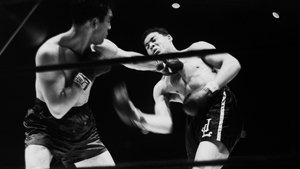
S17 Ep2
7.5
24th Jan 2005
"The Fight" recalls the June 1938 heavyweight title bout between Joe Louis and the German Max Schmeling, and assesses its political and social ramifications. "It was going to pit whole nations and whole ideologies against each other," says narrator Courtney B. Vance. Producer-director Barak Goodman also explores Louis's place in America's racial divide as well as the genial Schmeling's ties to Hitler.
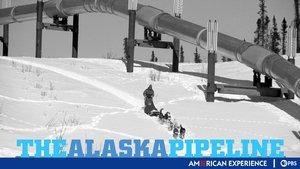
S18 Ep11
7.5
24th Apr 2006
The history of the Alaska Pipeline, which was built in the 1970s to transport oil across 800 miles of pristine wilderness, from Prudhoe Bay to Valdez. Included: the 1968 discovery of the largest oil field in North America at Prudhoe Bay; the battle between Native Americans and the government over the land the pipeline would cross; environmental concerns; and construction of the pipeline itself, which employed 78,000 people and cost more than $8 billion.

S23 Ep3
7.5
13th Oct 2010
Hour five explores the post-World War II era, when rising evangelist Billy Graham tried to inspire a religious revival that fused faith with patriotism in a Cold War battle with Godless Communism.
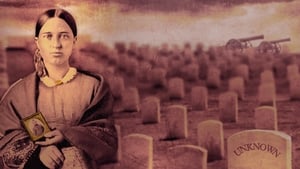
S24 Ep8
7.5
18th Sep 2012
With the coming of the Civil War, and the staggering casualties it ushered in, death entered the experience of the American people as it never had before -- permanently altering the character of the republic and the psyche of the American people. Contending with death on an unprecedented scale posed challenges for which there were no ready answers when the war began. Americans worked to improvise new solutions, new institutions, and new ways of coping with death on an unimaginable scale.
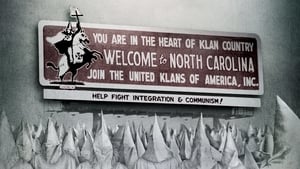
S27 Ep2
7.5
13th Jan 2015
The rise of the Ku Klux Klan in North Carolina during the 1960s is recalled. In 1963, Bob Jones Sr. started the state's chapter for the racist organization, and grew its membership to more than 10,000 within three years. Included: remarks from sociologist David Cunningham, whose book "Klansville, USA" the documentary is partially based on; historians David Cecelski and Gary Freeze; the Southern Poverty Law Center's Mark Potok; and journalist Patsy Sims, author of "The Klan."

S36 Ep6
7.5
1st Oct 2024
The American Vice President explores the little-known story of the second-highest office in the land, tracing its evolution from a constitutional afterthought to a position of political consequence. Focusing on the fraught period between 1963 and 1974, when a grief-stricken and then scandal-plagued America was forced to clarify the role of the vice president, the film examines the passage and first uses of the 25th Amendment and offers a fresh and surprising perspective on succession in the executive branch.
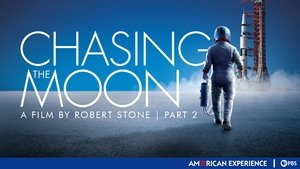
S31 Ep4
7.5
9th Jul 2019
What exactly was it going to take for America to beat the Soviets to the moon? Cold War tensions persisted, as rumours circulated that the Soviets were preparing to send an unmanned spacecraft to the moon. Nasa quickly developed the Gemini program, sending astronauts into orbit around the Earth to practice critical manoeuvres for the eventual trip to the moon.
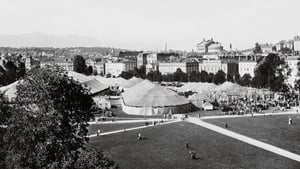
S30 Ep8
7.5
9th Oct 2018
Revisit the heyday of this distinctly American form of entertainment when former rivals Barnum, Bailey and the Ringling Brothers joined forces to present the “greatest show on earth” in big cities and small towns across the country.
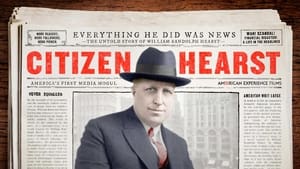
S33 Ep7
7.6
27th Sep 2021
William Randolph Hearst builds the nation’s largest media empire by the 1930s. Born into one of America’s wealthiest families, he used his outlets to achieve unprecedented political power, then ran for office himself.
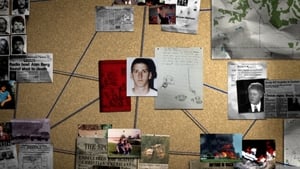
S29 Ep4
7.6
7th Feb 2017
On April 19, 1995, Timothy McVeigh, a former soldier deeply influenced by literature and ideas of the radical right, killed 168, and injured 675 others.
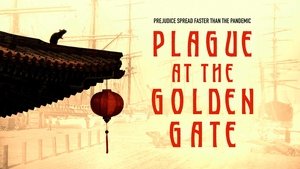
S34 Ep4
7.6
24th May 2022
Discover how an outbreak of bubonic plague in 1900 set off fear and anti-Asian sentiment in San Francisco. This new documentary tells the gripping story of the race against time by health officials to save the city from the deadly disease.

S37 Ep3
7.6
31st Mar 2025
Before the iPhone, the Polaroid camera let people instantly chronicle their lives. Along with instant photo mania, its company culture became the model for Silicon Valley. Mr. Polaroid is the story of Edwin Land, the man behind the camera.
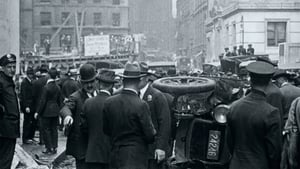
S30 Ep4
7.6
13th Feb 2018
Explore the story behind the first terrorist attack in the U.S., a mostly-forgotten 1920 bombing in the nation’s financial center that left 38 dead – a crime that remains unsolved today.

S27 Ep8
7.6
14th Sep 2015
In 1966, the year Walt Disney died, 240 million people saw a Disney movie, 100 million tuned in to a Disney television program, 80 million bought Disney merchandise, and close to seven million visited Disneyland. Few creative figures before or since have held such a long-lasting place in American life and popular culture.
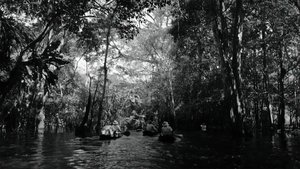
S30 Ep1
7.6
9th Jan 2018
The remarkable story of President Theodore Roosevelt’s journey with legendary Brazilian explorer Candido Rondon into the heart of the South American rainforest to chart an unexplored tributary of the Amazon.

S35 Ep3
7.6
20th Feb 2023
Monopoly is America’s favorite board game, a love letter to unbridled capitalism and our free market society. But behind the myth of the game’s creation is an untold tale of theft, obsession and corporate double-dealing.
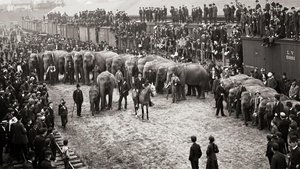
S30 Ep7
7.6
8th Oct 2018
Explore the early days of this popular, influential and distinctly American form of entertainment during an era when master showmen P.T. Barnum, James Bailey and the Ringling Brothers transformed the nation’s popular culture.
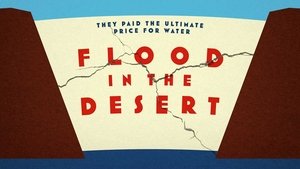
S34 Ep3
7.7
3rd May 2022
Explore the 1928 dam collapse, the second deadliest disaster in California history. A colossal engineering failure, the dam was built by William Mulholland, who had ensured the growth of Los Angeles by bringing water to the city via aqueduct.
S5 Ep1
7.7
20th Sep 1992
No family has had such a powerful hold on the American imagination. A saga of ambition, wealth, family loyalty and personal tragedy, the Kennedy story is unlike any other. From Joseph Kennedy's rise on Wall Street and frustrations in politics, through John Kennedy's march to the presidency -- orchestrated by his father - -to Edward Kennedy's withdrawal from the 1980 presidential race following the scandal of Chappaquidick, the family has left a legacy that continues to influence politics today.
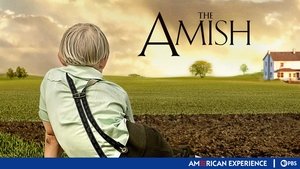
S24 Ep5
7.7
28th Feb 2012
The first documentary to deeply penetrate and explore this profoundly attention-averse group, The Amish answers many questions Americans have about this insistently insular religious community, whose intense faith and adherence to 500-year-old traditions have by turns captivated and repelled, awed and irritated, inspired and confused for more than a century.
S1 Ep1
7.5
4th Oct 1988
From Enrico Caruso to the ordinary San Franciscan, this film presents vivid memories of those trapped in the terrifying event of 1906. Four hundred eighty square blocks were reduced to rubble; thousands were killed, tens of thousands left homeless. Then the heroic struggle to rebuild a city from the ashes began.
S1 Ep2
7.3
11th Oct 1988
While the U.N. debated strategies for control of atomic energy, the U.S. Navy was preparing two highly-publicized nuclear tests. Seven hundred fifty cameras were shipped to Bikini to be used for a major propaganda film. Bikinians had no say about turning their idyllic island into an atomic test site. Forty years later, their home would still be too contaminated to support human life.
S1 Ep3
8.7
18th Oct 1988
As a child in 1899, Angie Debo was taken to Oklahoma in a covered wagon. She would become her state's most controversial historian -- her career threatened when she uncovered a cache of documents which proved a widespread conspiracy to cheat Native Americans out of oil-rich lands.
S1 Ep4
8.3
25th Oct 1988
A touching memoir beginning with life in a small Minnesota town and taking us through a young man's early days as pacifist. Reporting on the rise of fascism in Europe, Sevareid, as a young CBS reporter, would change his belief. Based on Sevareid's best-selling book of the same title.
S1 Ep5
8.5
1st Nov 1988
An original look through newsreels, war department films, posters and interviews with five, real-life "Rosies" about the reality of working in the defense plants during WWII, and their reactions to having to give up those jobs for returning GIs.
S1 Ep6
9.0
8th Nov 1988
A year in the life of Wyoming cowboys and the ranching families who have lived in Big Piney for six generations. Although very much the same as it was one hundred years ago -- tough, lonely, but still romantic -- ranching is now a threatened way of life.
S1 Ep7
15th Nov 1988
An intimate portrait of the Kennedy brothers and their confrontation with Alabama Governor George Wallace when he defied the courts by refusing to integrate the University in 1963. The film offers unprecedented access to the Oval Office as well as to strategy meetings held by Attorney General Robert Kennedy.

S1 Ep8
9.3
22nd Nov 1988
The story of a tragic collision of two civilizations, each with startlingly different views of one another. In 1886, 5,000 U.S. troops mobilized to capture this one man and his band of followers, who by refusing to move onto a reservation, defied and eluded federal authorities.
S1 Ep9
8.7
29th Nov 1988
An updated look at the Alabama tenant families that Walker Evans and James Agee documented in their 1936 Pulitzer Prize-winning book, an American classic.
S1 Ep10
6.0
6th Dec 1988
The evolution of rhythm and blues through the careers of singers Ruth Brown and Charles Brown, from the 1940s into the 50s, with contemporary performances by both.
S1 Ep11
9.0
13th Dec 1988
Father Charles Coughlin, a Roman Catholic priest from Michigan, uses the new power of radio to become one of the first media stars; every Sunday he would broadcast his message railing against the nation's economic and social system to millions of listeners caught in the grip of the Depression.
S1 Ep12
8.0
20th Dec 1988
The design and art of quilting yields intimate clues about the lives of 19th century women, who stitched their personal and political stories into these artifacts of history.
S1 Ep13
8.0
27th Dec 1988
The journey of Prince Maximilian, German naturalist, and artist Karl Bodmer, who explored the Mississippi River area from 1832-34, meticulously documenting in paintings and journals the landscape, plants and life of Native Americans.
S1 Ep14
3rd Jan 1989
Pulitzer Prize-winning writer Eudora Welty narrates the story of her own Southern childhood and early artistic development in Jackson, Mississippi. Based on her best-selling book of the same title.
S1 Ep15
10th Jan 1989
From the late 1920s through the 1960s, Robert Moses held almost total power over the landscape of New York. He built bridges, highways, Jones Beach, Lincoln Center and the United Nations, some of the most ambitious public works ever conceived, and some of the most controversial.
S1 Ep16
8.5
17th Jan 1989
A Gothic tale of sin and redemption in 19th century New England. A small town in Maine reacts to the unconventional behavior of one of its young residents, a woman named Emeline Gurney. A fascinating examination of small town mores.
Loading...
The first episode of American Experience aired on October 04, 1988.
The last episode of American Experience aired on October 28, 2025.
There are 399 episodes of American Experience.
There are 38 seasons of American Experience.
Yes.
American Experience is set to return for future episodes.